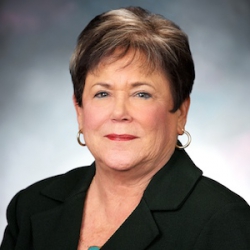Washington state Representative Sherry Appleton, a Democrat from Poulsbo, introduced an online poker bill to the legislature this week. House Bill 1114 comes as a surprise to most observers in the U.S. online gambling community, because Washington has not been a state reported to be on the brink of such legislation. Washington is the only state in the Union which has an explicit law against online gambling, so the inclusion of such a bill is that much more remarkable.
For most of the past year, the U.S. states most-associated with online gambling legislation were California and Pennsylvania. Several lawmakers and gaming interests have staked out well-known stances on the issues in those states, so gaming observers are familiar with those stances.
Similar to California’s Legislation
HB 1114 is said to be quite similar to the legislation being discussed in California at present–with the main exception being the bad actor laws. In the Golden State, politicians want to allow online poker, while keeping online casinos illegal. The Washington legislation would do the same.
In the New Jersey gaming market, which accounts for about 90% of the online gambling revenues in the country at present, online casinos generate more revenues than online poker. By the same token, Internet casinos are seen as more of a threat to cannibalize business from the land-based gaming industry.
iPoker Only for Washington
That might be the reason that Representative Appleton wants to limit iGaming legislation in her state. With such a strenuous legal framework against online gaming–and with a large native land-based casino gaming industry–she might believe it would be easier (or more realistic) to have online poker approved by the legislature.
Under Section 9.46.240 of Washington’s gaming law, which was crafted in 2006, online gambling is illegal. The law reads that is illegal for anyone who “knowingly transmits or receives gambling information by telephone, telegraph, radio, semaphore, the Internet, a telecommunications transmission system, or similar means.”
Draconian Anti-Online Gambling Laws
Besides the humor of a law that would ban gambling via semaphore signals, the state law is one of the few in the country that makes it a punishable offense for regular citizens to engage in Internet gambling. Under the law, online gamblers could be imprisoned for up to 5 years and fined up to $10,000 for their gaming activities. In truth, Washingtonian has been imprisoned or fined since 2006 for gambling over the Internet, but that does not mean Washington’s law enforcement personnel might not arrest players in the future.
The draconian nature of the current Washington laws may have worked against anti-gambling advocates in Washington. Since the strict laws were put in place 9 years ago, it has become obvious that such attempts at deterrence have had no effect. It has become equally obvious that those gamblers who chose to flaunt the law are at risk from unregulated gaming operators. Under the circumstances, many legislators could be receptive to the idea of a regulated gaming market.
Finding New Revenues
Most U.S. states face tough choices when trying to balance the budget. Dozens of states face a start choice between cutting services or raising taxes. In that situation, more American lawmakers each year seem willing to legalize, regulate, and tax gambling. This creates revenue streams for the state without raising property and sales taxes on residents.
Until 2011, the only option was for states to legalize more land-based casinos, racetracks, and casino cruises. Now, the state can legalize online poker, which provides a venue for gamblers which is unobtrusive, compared to the traditional form of gambling.
Washington Advocate Curtis Woodward
Curtis Woodward, a spokesman for the Washington Internet Poker Initiative, is the leading advocate of interactive gambling in the state. Woodward says most gaming advocates had written off his state, so he got involved personally.
Curtis Woodward on HB 1114
When asked about his campaign for online gaming regulation, Curtis Woodward said, “It seemed to me that Washington State had just been written off regarding online poker, which I found unsettling to say the least. Someone had to step up and raise the issue or we would be a forgotten little corner in the Northwest. I had reached out to every single legislative candidate prior to the 2014 elections.”
Woodward said he approached Rep. Sherry Appleton, because she had cosponsored several bills that attempted to repeal the penalties against gamblers. She appeared receptive before the election, then agreed to sponsor the bill after the November elections.
Details of HB 1114
House Bill 1114 does not suggest a level of taxation on Internet poker rooms licensed by the state. Instead, the bill says that the Washington Gaming Commission should flesh out those details. Also, no provisions were made for bad actors, so Amaya Gaming and PokerStars should be able to enter the Washington poker market, if such a law were to pass.
The bill also allows for Washington to join an interstate online poker compact, such as the one signed between Nevada and Delaware in the spring of 2014. Many gambling advocates believe such a compact is the future of the American online poker industry, because it allows states to pool players. This allows sites to serve customers needs better, while growing the size of prize pools. Each of these are huge factors in whether iPoker is successful or not.

